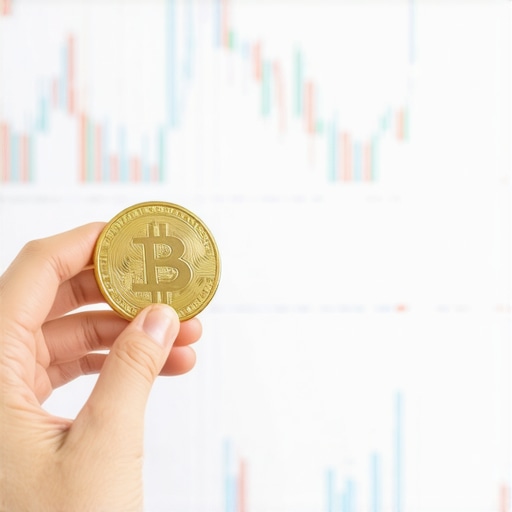Understanding the Importance of Buying Gold Bullion Online Safely
In today’s digital age, purchasing gold bullion online has become increasingly popular among investors looking to diversify their portfolios. With the rise of e-commerce, buying gold has never been easier; however, it also comes with its own set of challenges and risks. To ensure a safe and secure transaction, it’s crucial to follow specific practices when buying gold bullion online.
Research Reputable Sellers: A Key Step in Your Purchase
When considering an online gold purchase, the first step is to identify reputable sellers. Look for established dealers with a solid track record in the industry. Websites like the Gold Market Analysis provide insights into current trends and can help you ascertain which sellers are recognized for their reliability.
Check for customer reviews and ratings on platforms like the Better Business Bureau (BBB) or Trustpilot. These reviews offer valuable feedback from previous buyers and can help you avoid potential scams. Additionally, ensure that the dealer has clear policies regarding authentication and returns.
Verify Authenticity: Ensuring Quality and Value
Another crucial practice is to verify the authenticity of the gold bullion you plan to purchase. Look for coins and bars that have a recognized hallmark or stamp indicating their purity. Most reputable dealers will provide certificates of authenticity, which serve as proof of the bullion’s quality.
For more detailed guidance on evaluating gold investments, you may want to explore our Comprehensive Guide to Buying Gold. This guide emphasizes the importance of understanding the quality of gold as it directly impacts its value.
Secure Payment Methods: Protecting Your Financial Information
When you’re ready to make a purchase, choose secure payment methods that protect your financial information. Credit cards and reputable payment services like PayPal often offer buyer protection, which can be beneficial in case of disputes. Avoid sellers that only accept wire transfers or cash payments, as these methods are less secure and harder to trace.
Additionally, ensure that the website you are purchasing from is secure. Look for URLs that start with HTTPS, indicating that the site uses encryption to protect your information.
Understanding Shipping and Insurance: Safeguarding Your Investment
After purchasing gold bullion online, it’s essential to understand the shipping and insurance process. Reputable dealers will provide tracking information for your shipment and may offer insurance to cover potential loss or damage during transit. This is a vital consideration, as gold bullion is a valuable investment that requires careful handling.
For more insights on gold investments and the logistics involved, refer to our article on Exploring Gold IRA Options for Retirement Planning. This resource can help you navigate the complexities of investing in gold while also considering long-term strategies.
Understanding Market Trends: What Affects Gold Prices?
Gold prices are influenced by various factors, including global economic conditions, inflation rates, and the demand for gold as a safe-haven asset. It’s essential to stay informed about these market trends to make prudent investment decisions. For a deeper dive into this topic, you can visit our Gold Price Trends: Essential Data for Gold Investors article, which outlines the key elements affecting gold prices.
The Role of Economic Indicators in Gold Investment
Economic indicators such as interest rates, employment rates, and GDP growth can significantly impact gold prices. When economies are unstable, investors often flock to gold for security, driving up prices. Understanding these indicators will help you anticipate price movements, making it easier to time your purchases effectively.
Staying Updated on Geopolitical Events
Geopolitical events can create volatility in the gold market. For example, political unrest or changes in government policy can lead to increased demand for gold as a safeguard against uncertainty. Regularly checking news sources and economic updates can provide valuable insights into when to buy gold bullion. You might find our post on Understanding the Impact of Gold Price Fluctuations particularly useful.
Choosing the Right Form of Gold Investment
When buying gold, you have several options, including bullion bars, coins, and ETFs. Each form has its advantages and disadvantages. Bullion bars are ideal for larger investments, while coins can be easier to liquidate. ETFs provide exposure to gold prices without the need to store physical gold. If you’re unsure which option suits your needs, our Gold Bullion vs. Gold Coins: Which is the Better Investment? article offers a comprehensive comparison.
Physical Gold vs. Gold ETFs: Making the Right Choice
Deciding between physical gold and gold ETFs depends on your investment strategy. Physical gold can be a tangible asset, providing a sense of security, while ETFs offer liquidity and ease of trading. To explore the pros and cons of each option, refer to our post on Physical Gold vs. Gold ETFs: Which One to Choose?.
Investing in Gold Coins: Key Considerations
If you decide to invest in gold coins, consider the coin’s history, condition, and rarity, as these factors can significantly influence its value. Additionally, ensure you purchase from reputable dealers to avoid counterfeit coins. For further guidance, check out our article on Exploring Gold Coins: A Beginner’s Comprehensive Guide.
Storage and Insurance: Protecting Your Gold Investment
Once you’ve purchased gold bullion, it’s crucial to store it securely. Many investors opt for safe deposit boxes at banks or home safes. Additionally, consider insuring your gold to protect against theft or loss. For more tips on securing your investments, our post on How to Safeguard Your Physical Gold Investments in 2025 provides essential insights.
The Importance of Insurance for Gold Holdings
Insuring your gold investment can safeguard your assets against unforeseen circumstances. Insurance policies vary, so it’s essential to choose one that covers the full value of your gold. This precaution can provide peace of mind and ensure you’re protected in the event of theft or loss.
Final Thoughts: Making Informed Gold Purchases
Investing in gold bullion online requires careful research and consideration. By understanding market trends, choosing the right investment form, and ensuring secure storage, you can navigate the gold market effectively. For further information on investing in gold responsibly, visit our cornerstones like Gold Investment: A Comprehensive Guide to Buying Gold.
Gold Investment Storage: Best Practices for Security
When investing in gold, securing your assets is paramount. Gold investments, whether in the form of bullion, coins, or ETFs, require careful consideration regarding storage to prevent loss or theft. For those looking for effective storage solutions, our guide on How to Safeguard Your Physical Gold Investments in 2025 offers valuable insights and recommendations.
Types of Gold Storage Options
There are various methods to store gold, each with its advantages and drawbacks. Common storage options include:
- Home Safes: Investing in a high-quality safe can provide effective protection against theft. Ensure the safe is fireproof and securely anchored to prevent easy removal.
- Bank Safe Deposit Boxes: Renting a safe deposit box at a bank can be a secure option, offering peace of mind. However, access is limited to bank hours, and you may face retrieval fees.
- Third-Party Storage Facilities: Specialized storage companies provide secure facilities designed for precious metals. These facilities often have advanced security measures, including 24/7 surveillance and insurance coverage.
Insurance for Your Gold Assets
Regardless of your storage method, insuring your gold investment is crucial. Insurance protects against loss due to theft, damage, or natural disasters. When choosing an insurance policy, consider coverage limits and any exclusions. For additional guidance on this topic, refer to our article The Importance of Insurance for Gold Holdings.
Monitoring Your Gold Investment
Once your gold is securely stored, it’s essential to monitor your investments regularly. Keeping track of market trends can help you make informed decisions on when to buy or sell. Regularly reviewing your portfolio ensures that your gold investments align with your overall financial goals.
Staying Informed on Market Developments
Staying updated on gold market developments is vital for effective investing. Follow industry news, subscribe to financial newsletters, and join forums dedicated to gold investing. For a comprehensive understanding of current gold market trends, check out our Gold Market Analysis: Current Trends and Future Predictions.
Utilizing Gold Price Alerts
Many online trading platforms offer price alert features, allowing you to set notifications for specific price points. This tool is beneficial for timing your buying and selling decisions effectively. By leveraging technology, you can maximize your returns while minimizing risks.
Tax Implications of Gold Investments
Investing in gold can have tax implications that vary by region and investment type. It’s essential to understand how taxes apply to your gold investments to avoid unexpected liabilities. In the United States, gold is typically classified as a collectible, subjecting it to different capital gains tax rates than standard investments.
Consulting a Tax Professional
To navigate the complexities of gold taxation, consulting with a tax professional is advisable. They can provide personalized advice based on your investment strategy and financial situation. For more insights, explore our post on Investing in Gold: Tips for Reducing Risks in 2025, which includes relevant tax considerations.
Final Thoughts on Investing in Gold
Investing in gold can be a rewarding venture if approached with knowledge and caution. By implementing sound storage practices, staying informed about market dynamics, and understanding tax implications, you can enhance your investment experience. For additional resources on gold investing, consider visiting our cornerstone content, Gold Investment: A Comprehensive Guide to Buying Gold.
Understanding Gold Trading Techniques
Gold trading involves buying and selling gold assets to earn profits from price fluctuations. To be successful, it’s essential to understand various trading techniques and strategies. Whether you’re trading physical gold, gold ETFs, or gold mining stocks, having a solid grasp of market dynamics can significantly enhance your trading performance.
Types of Gold Trading Strategies
There are several effective strategies for trading gold, including:
- Day Trading: This short-term strategy involves buying and selling gold within a single day to capitalize on intraday price movements. Successful day traders often rely on technical analysis and real-time market data to make quick decisions.
- Swing Trading: Swing trading focuses on capturing price swings over several days or weeks. Traders using this strategy analyze price patterns and market trends to identify potential entry and exit points.
- Long-Term Investing: For those looking to hold gold for extended periods, a long-term investing approach may be more suitable. This strategy involves buying gold with the expectation that its value will appreciate over time, often driven by macroeconomic factors.
Utilizing Technical Analysis
Technical analysis is a vital tool for gold traders. By studying historical price movements and patterns, traders can identify potential future price trends. Popular technical indicators include moving averages, Relative Strength Index (RSI), and Fibonacci retracements. Understanding these tools can help you make more informed trading decisions.
Choosing the Right Gold Trading Platform
The choice of a trading platform can significantly impact your trading success. When selecting a platform, consider factors such as fees, user interface, available trading tools, and customer support. Some popular platforms for gold trading include online brokerages and specialized gold trading services.
Evaluating Trading Costs
Understanding the costs associated with trading gold is crucial for maximizing your returns. Look for platforms that offer competitive trading fees and commissions. Additionally, be aware of any hidden costs, such as withdrawal fees or inactivity fees, that may affect your overall profitability.
Demo Accounts for Practice
Many trading platforms offer demo accounts that allow you to practice trading without risking real money. Utilizing a demo account can help you familiarize yourself with the trading interface, test different strategies, and build your confidence before committing actual funds.
Risk Management in Gold Trading
Effective risk management is essential to protect your investments and ensure long-term success in gold trading. Here are some key risk management strategies to consider:
- Setting Stop-Loss Orders: A stop-loss order automatically sells your gold assets when they reach a predetermined price, helping you limit potential losses.
- Diversification: Avoid putting all your capital into a single trade or asset. Diversifying your portfolio by including different types of gold investments can help mitigate risk.
- Position Sizing: Determine how much of your total capital you are willing to risk on each trade. This practice ensures that a single loss doesn’t significantly impact your overall portfolio.
Staying Informed on Market Trends
Keeping abreast of market trends and economic indicators is crucial for successful gold trading. Factors such as inflation rates, geopolitical tensions, and changes in currency values can significantly influence gold prices. Regularly reviewing industry news and analysis helps you make informed trading decisions.
Utilizing Financial News Sources
Subscribe to reputable financial news outlets and follow market analysts who specialize in gold. Staying updated on news related to gold price trends and market forecasts will provide you with valuable insights that can inform your trading strategies.
Joining Trading Communities
Participating in trading communities and forums can be beneficial for learning from experienced traders and sharing insights. Engaging with others who share similar interests can provide additional perspectives and support as you navigate the gold trading landscape.
Conclusion: Your Path to Successful Gold Trading
In conclusion, successful gold trading requires a combination of knowledge, strategies, and risk management. By understanding different trading techniques, choosing the right platform, and staying informed about market trends, you can maximize your returns on gold investments. For more comprehensive insights, consider checking our guide on Gold Investment Strategies for Beginners: Start Smart Today to further enhance your trading skills.
Common Questions About Gold Trading
Gold trading can be a complex topic, and many traders have questions about the best practices and strategies. Below are some frequently asked questions that can help you navigate the gold trading landscape more effectively.
What is the best strategy for trading gold?
The best strategy for trading gold often depends on your personal goals and risk tolerance. Some traders prefer day trading for quick profits, while others opt for swing trading or long-term investing to capitalize on market trends. It’s essential to evaluate your trading style and combine it with proper risk management techniques.
How do I choose a gold trading platform?
When choosing a gold trading platform, consider factors such as fees, available trading tools, user interface, and customer support. Researching reviews of various platforms can also provide insights into their reliability and features, ensuring you select one that best fits your trading needs.
What are the risks associated with gold trading?
Like all investments, gold trading comes with risks, including market volatility, geopolitical events, and changes in economic conditions. Effective risk management strategies, such as setting stop-loss orders and diversifying your portfolio, can help mitigate these risks.
How does inflation affect gold prices?
Gold is often seen as a hedge against inflation. When inflation rises, the value of currency typically falls, leading investors to turn to gold as a stable asset. This increased demand can drive up gold prices, making it essential for traders to monitor inflation trends.
Can I trade gold without a broker?
Yes, you can trade gold without a traditional broker by using online trading platforms and exchanges that facilitate gold trading. However, it’s crucial to ensure that these platforms are reputable and offer the necessary tools for effective trading.
What are gold ETFs and how do they work?
Gold ETFs (Exchange-Traded Funds) are investment funds that hold gold assets and trade on stock exchanges. They provide investors with a way to gain exposure to gold prices without needing to buy physical gold. When the price of gold rises, the value of the ETF typically increases, making it an attractive option for many traders.
How can I stay updated on gold market trends?
Staying informed about gold market trends can be achieved through financial news sources, market analysis reports, and joining trading communities. Subscribing to reputable financial news outlets and following analysts who specialize in gold can provide valuable insights into price movements and market forecasts.
What is the significance of gold mining stocks in trading?
Gold mining stocks represent shares in companies that extract gold. Investing in these stocks can provide leverage to gold price movements, as their value often correlates with gold prices. However, investing in mining stocks also comes with additional risks, such as operational challenges and management decisions.
Are there seasonal trends in gold trading?
Yes, there can be seasonal trends in gold trading, often influenced by various factors such as demand during cultural events, jewelry buying seasons, and economic conditions. Traders should be aware of these trends as they can impact prices and trading strategies.
Conclusion: Mastering Gold Trading for Success
In conclusion, mastering gold trading requires a thorough understanding of market dynamics, effective strategies, and sound risk management. By familiarizing yourself with the various trading techniques, choosing the right platform, and staying informed on trends, you can enhance your trading skills and maximize your returns. Remember, continuous learning and adaptation are key to navigating the complexities of gold trading successfully.










